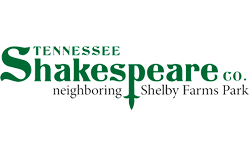In-Person and Online Friday, October 9 at 8:00 pm (CDT)
We continue our “Essential” 13th performance season on Friday, October 9 with an election season look at William Shakespeare’s most political and perhaps relevant tragedy in “Like to a Lonely Dragon: Shakespeare’s Election of Coriolanus.”
The fourth entry of nine in our new Coger Literary Salon Series, Like to a Lonely Dragon is curated by TSC Founder and Producing Artistic Director Dan McCleary, who also leads the company of actors in the title role.
The Salon will be presented both in-person on TSC’s Owen and Margaret Wellford Tabor Stage and simulcast online beginning at 8:00 pm (CDT), to be followed by a brief talkback with the actors. The Salon will run approximately 50 minutes.
The acting company also includes Michael Khanlarian, Lauren Gunn, Jasmine Robertson, Simmery Branch, Ural Grant, and Blake Currie.
Shakespeare’s late-life play (1608) frequently is overlooked as a political powerhouse of both rhetoric and love, usually in favor of Julius Caesar. However, the raw modernity of Coriolanus has been appreciated by political leaders and progressive theatre companies in the last two centuries for both national propaganda and citizen protest mobilization.
“For a story that was ancient and well-known, the play’s ending was and remains surprising and moving,” says McCleary. “It is a harsh, bloody, painful look at a young Republic struggling with its checks and balances through the austere nurture of male Roman virtue. For all of the play’s violence and glorification of military and political rule, it nevertheless is framed and influenced by a feminine perspective: the women in Coriolanus’ family, and Caius Martius Coriolanus himself. This leads to a personal sacrifice that we do well to remember during our own election season. We all must be Tribunes of the people right now. We all must vote.”
Based on Plutarch’s Lives of Noble Greeks and Romans, which was going through first-time English translations as Shakespeare was growing up and writing, Martius was a real person who, at a boy’s age, helped defeat Rome’s Tarquin kings in 510 B.C.E. Shakespeare hews closely to Plutarch’s story, which takes place from 493-489 B.C.E. The fatherless Martius is raised as a killing machine, “a thing of blood,” and his mother extols the number of physical wounds in her son’s body as she forces him to stand for political office, being of the patrician class. Martius cannot help but speak his disdain for the office and the plebian class; and with his potent threats and opposition in the Senate, he is banished from Rome only to join his arch enemy in laying vengeful siege to his home and his family. But when the women and children of Martius’ family are deployed in supplication to him, what happens next is knowingly mortal.
“It isn’t unusual that Shakespeare would use Plutarch for his Roman plays,” says McCleary. “But it is compelling that he is likely penning most or all of Coriolanus during a quarantine period in London, also immediately following his own mother’s death, as well as in the wake of England’s corn riots and protests in the midlands. The peoples’ voices, their rights, and the government starving them and preventing supplies from getting to them launch both the ancient Roman story and, potentially, Shakespeare’s desire to dramatize it. While it is illegal for him to put current events on stage, Shakespeare’s mortal examination of brutalized political systems and the people for whom they are created to serve reflects both sides of Fascist arguments that will be made in the centuries to follow.”
The Salon will feature approximately ten scenes extracted from the play, interspersed with conversation about their creation and relevance.
Box Office
Purchase tickets online at www.tnshakespeare.org or by calling (901) 759-0604 Monday-Friday from 9:00 am – 5:00 pm. The Salon will be available to patrons as both an in-person and digital online experience.
Online option:
The online presentation will show only once via a one-camera setup on TSC’s website with a time-stamped, specific password provided to patrons on the day of the Salon. The digital waiting room opens 15 minutes prior to curtain. All digital online tickets are $15.
In-person option:
In-person seating at the Tabor Stage is strictly limited to 54 socially-distanced patrons. Face coverings must be worn. Patrons must answer basic health screening positively and provide contact information prior to theatre entry. Patrons may select the preferred seating section, and TSC will then select socially-distanced seats based on the party’s size and the order in which tickets were purchased.
Tickets in Seating Section One are $25 in-person (Students $18/Seniors $22). Tickets in Seating Sections Two and Three are $18 in-person (Students $15/Seniors $18). Tickets must be purchased in advance of the Salon (not at the door), printed, and brought with patrons to the theatre. The house will open 30 minutes prior to curtain.
Credit Card charges require a $1 per-ticket fee. Schedule subject to change with notice. Free parking at TSC. There are no refunds/exchanges.
Tennessee Shakespeare Company’s 13th Performance Season Continues
FREE Shout-Out Shakespeare:
Romeo and Juliet
a modern, pandemic production
by William Shakespeare
directed outdoors by Stephanie Shine
sponsored by Evans/Petree, P.C. and Campbell Clinic
October 11-24
Halloween’s Tell-Tale Heart: Edgar Allan Poe, Ambrose Bierce, and Flannery O’Connor
Salon curated by Stephanie Shine and Dr. Diane Dombrowski
Friday, October 30 at 8:00 pm
From Dublin to the Sea: John M. Synge
Salon curated by Stephanie Shine
in honor of Pat and Ernest Kelly
Sunday, November 8 at 3:00 pm
A Little, Old-Fashioned Thanksgiving: Louisa May Alcott
Salon curated by Stephanie Shine
Sunday, November 22 at 3:00 pm
A Christmas Carol: Charles Dickens’ Dramatic Premier Reading in Boston
Salon curated and read by Dan McCleary
December 4-20
The Hunting Heart: Carson McCullers
Salon curated by Stephanie Shine
co-sponsored by Anne and Michael Keeney
Sunday, January 24, 2021 at 3:00 pm
“This is Illyria, Lady”: Twins, Clowns, and Cross-Dressed Lovers in Twelfth Night
Salon curated by Stephanie Shine
Friday, February 26, 2021 at 8:00 pm
The Shakespeare Gala
a fun, breezy party to benefit our Education Program
Online Only
sponsored by TSC’s Board of Directors
Saturday, April 24, 2021 at 6:00 pm
Season 13 Sponsors and Partners
TSC’s generous sponsors and partners of its season, productions, and Education and Outreach Program include International Paper, ArtsMemphis, Tennessee Arts Commission, the National Endowment for the Arts and Arts Midwest, First Horizon Foundation through an ArtsFirst grant, Community Foundation of Greater Memphis, Independent Bank, Evans|Petree, P.C., Campbell Clinic, the family of Pat and Ernest Kelly, The Sims Family Foundation, Nancy R. Copp, the family of Owen and Margaret Wellford Tabor, Dr. Greta McCormick Coger, the Barbara B. Apperson Angel Fund, the Dunbar Abston Fund for Sustainable Excellence, University of Memphis’ Department of Theatre & Dance, Shelby County Schools, Collierville Municipal School District, Memphis Juvenile Justice System, the Memphis V.A. Hospital, and the Benjamin Hooks Library Friends. TSC’s season is funded under a Grant Contract with the State of Tennessee.
About Tennessee Shakespeare Company:
Tennessee Shakespeare Company is a professional, not-for-profit theatre and education organization in Memphis dedicated to live, diverse performances of William Shakespeare’s plays, as well as works of social significance by classical, Southern, and modern writers/composers; and to providing innovative educational and training programming in-person and online.
Founded in 2008 by Producing Artistic Director Dan McCleary, Tennessee Shakespeare Company is Memphis’ first and only professional, classical theatre. In 2017, TSC purchased its first performing arts facility, which is being renovated into the state’s only permanent home for professional, year-round Shakespeare performance, education, and training. The company is in the midst of its $6.5 million Brave New World capital campaign.
TSC has engaged its community with 47 site-specific plays and events for over 50,000 patrons. Its ground-breaking Education Program has reached 120 schools across nine states, totaling over 250,000 student interactions. The Program has achieved a high regional and national profile, partners annually with most local school systems, and for the second consecutive year is one of just seven U.S. theatres to be awarded a National Endowment for the Arts/Arts Midwest’s Shakespeare in American Communities Juvenile Justice grant for expanded residencies with local incarcerated youth.
The Education Program this year is launching its inaugural Online Academy, a digital catalogue of nearly 50 online courses, classes, playshops, residencies, and performances for students in K-12, for college students, and for adult learners. Taught entirely by TSC’s Teaching-Artists, the Academy provides a hybrid of live and pre-recorded classical educational opportunities at affordable rates that feature interactivity, dynamism, inquiry, and joy for all learners.



